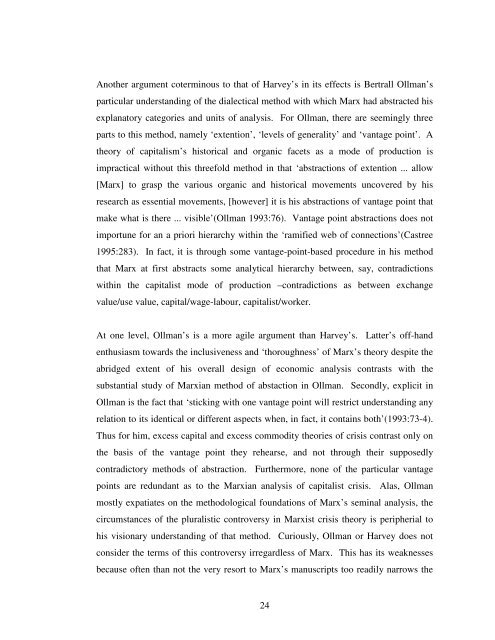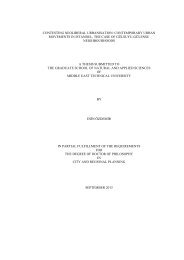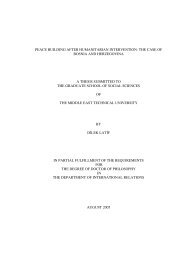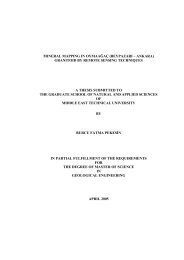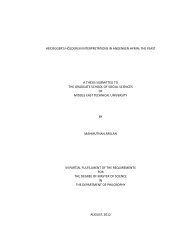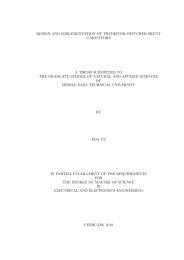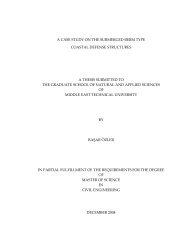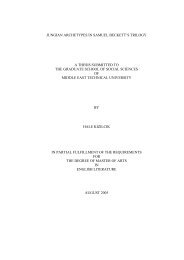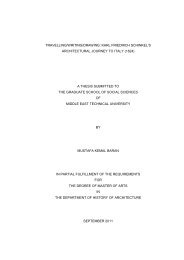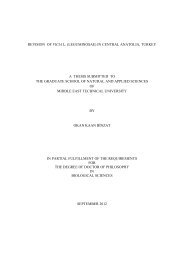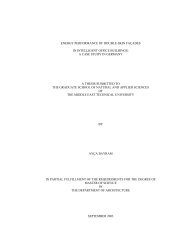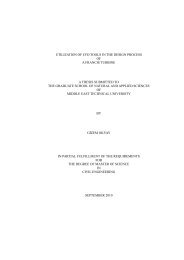View Original - Middle East Technical University
View Original - Middle East Technical University
View Original - Middle East Technical University
You also want an ePaper? Increase the reach of your titles
YUMPU automatically turns print PDFs into web optimized ePapers that Google loves.
Another argument coterminous to that of Harvey’s in its effects is Bertrall Ollman’s<br />
particular understanding of the dialectical method with which Marx had abstracted his<br />
explanatory categories and units of analysis. For Ollman, there are seemingly three<br />
parts to this method, namely ‘extention’, ‘levels of generality’ and ‘vantage point’. A<br />
theory of capitalism’s historical and organic facets as a mode of production is<br />
impractical without this threefold method in that ‘abstractions of extention ... allow<br />
[Marx] to grasp the various organic and historical movements uncovered by his<br />
research as essential movements, [however] it is his abstractions of vantage point that<br />
make what is there ... visible’(Ollman 1993:76). Vantage point abstractions does not<br />
importune for an a priori hierarchy within the ‘ramified web of connections’(Castree<br />
1995:283). In fact, it is through some vantage-point-based procedure in his method<br />
that Marx at first abstracts some analytical hierarchy between, say, contradictions<br />
within the capitalist mode of production –contradictions as between exchange<br />
value/use value, capital/wage-labour, capitalist/worker.<br />
At one level, Ollman’s is a more agile argument than Harvey’s. Latter’s off-hand<br />
enthusiasm towards the inclusiveness and ‘thoroughness’ of Marx’s theory despite the<br />
abridged extent of his overall design of economic analysis contrasts with the<br />
substantial study of Marxian method of abstaction in Ollman. Secondly, explicit in<br />
Ollman is the fact that ‘sticking with one vantage point will restrict understanding any<br />
relation to its identical or different aspects when, in fact, it contains both’(1993:73-4).<br />
Thus for him, excess capital and excess commodity theories of crisis contrast only on<br />
the basis of the vantage point they rehearse, and not through their supposedly<br />
contradictory methods of abstraction. Furthermore, none of the particular vantage<br />
points are redundant as to the Marxian analysis of capitalist crisis. Alas, Ollman<br />
mostly expatiates on the methodological foundations of Marx’s seminal analysis, the<br />
circumstances of the pluralistic controversy in Marxist crisis theory is peripherial to<br />
his visionary understanding of that method. Curiously, Ollman or Harvey does not<br />
consider the terms of this controversy irregardless of Marx. This has its weaknesses<br />
because often than not the very resort to Marx’s manuscripts too readily narrows the<br />
24


